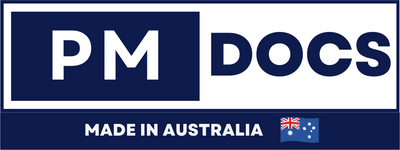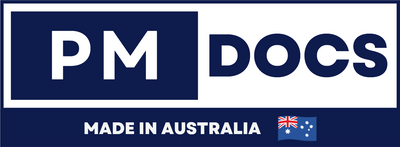Enterprise-Level GDPR Toolkit Programs In Australia
Introduction
In Australia, the rise of enterprise-level GDPR toolkit programs is revolutionizing the way organizations handle data protection and privacy compliance. These programs serve as comprehensive frameworks that equip businesses with the tools and resources needed to navigate the complexities of GDPR compliance effectively. From understanding regulatory obligations to implementing robust data management practices, these toolkits are designed to help enterprises not just comply with the GDPR, but also to foster a culture of privacy and accountability within their operations.

Why Enterprises in Australia Need an Enterprise-Grade GDPR Toolkit
In today’s globalized economy, data protection has become a crucial concern for enterprises across the world. While Australia has its own privacy regulations, the growing interconnectedness with European markets and the implementation of the General Data Protection Regulation (GDPR) necessitate the adoption of robust compliance measures. Here are key reasons why Australian enterprises should invest in an enterprise-grade GDPR toolkit.
1. Global Business Opportunities - Australia's enterprises often engage in cross-border transactions, particularly with European clients. With the GDPR in effect, ensuring compliance is essential when dealing with personal data of EU citizens. An enterprise-grade GDPR toolkit enables Australian businesses to navigate these regulations effectively and unlock new market potential.
2. Enhanced Data Security - Cybersecurity threats are on the rise, making data protection a priority. An enterprise-grade GDPR toolkit provides sophisticated tools that help organizations locate, manage, and protect sensitive data. By implementing comprehensive security measures, companies can prevent data breaches and protect themselves from potential fines imposed by regulators.
3. Avoiding Heavy Fines - The GDPR imposes hefty fines for non-compliance, reaching up to 4% of a company's annual global turnover. For Australian enterprises, investing in a GDPR toolkit is a proactive measure that mitigates the risk of financial penalties. Adopting enterprise-grade solutions ensures that data handling processes align with international standards.
4. Streamlined Data Management - Managing large volumes of data can be challenging. An enterprise-grade GDPR toolkit streamlines data mapping, access controls, and processing activities, making it easier to comply with GDPR principles such as data minimization and purpose limitation. This leads to improved operational efficiency within the organization.
5. Building Trust and Reputation - Data privacy has become a significant factor influencing consumer trust. By demonstrating a commitment to data protection through the implementation of an enterprise-grade GDPR toolkit, Australian enterprises can improve their reputation and foster stronger relationships with clients. Compliance not only secures customer trust but also enhances the overall brand credibility.
6. Facilitating Better Risk Management - Effective risk management is an essential part of modern business strategy. An enterprise-grade GDPR toolkit enables organizations to conduct thorough risk assessments related to data processing. By identifying vulnerabilities early, companies can implement necessary controls and continuously monitor compliance, leading to better overall data governance.
7. Preparedness for Future Regulations - As data protection laws continue to evolve globally, the adoption of an enterprise-grade GDPR toolkit positions Australian businesses to easily adapt to future regulations. Staying ahead of compliance requirements not only saves time and resources but also keeps companies agile in a fast-changing landscape.
GDPR’s Extra-Territorial Reach: Implications For Australia
Australia, like many countries, has its own set of privacy laws governed primarily by the Privacy Act 1988. However, with the advent of the GDPR, Australian businesses that engage with EU citizens must ensure compliance with both local and EU regulations. This compliance is not merely a matter of good practice; failure to align with GDPR can result in hefty fines and reputational damage for organizations operating outside the EU that handle EU residents' data.
The extra-territorial reach of GDPR raises critical questions for Australian companies, especially those using data analytics, marketing, or cloud services that may inadvertently collect personal data from the EU. Hence, understanding the nuances of GDPR becomes paramount for Australian organizations aiming to sustain their international business operations while maintaining compliance.
What Is An Enterprise-Level GDPR Toolkit?
The General Data Protection Regulation (GDPR) is a comprehensive data protection law that governs how organizations handle personal data. For enterprises looking to comply with these regulations, an enterprise-level GDPR toolkit serves as an essential resource. This article explores the scope and components of such toolkits, outlining their importance in GDPR compliance.
Scope of an Enterprise-Level GDPR Toolkit
-
Compliance Framework: An enterprise-level GDPR toolkit provides a structured compliance framework that aligns with legal requirements, ensuring that all data processing activities meet GDPR standards.
-
Risk Assessment: The toolkit includes methodologies for conducting risk assessments, enabling organizations to identify and mitigate risks associated with personal data processing.
-
Policy Development: Toolkits often contain templates and guidelines for developing internal policies that support GDPR compliance, such as data protection policies and privacy notices.
-
Data Inventory Management: Enterprises can utilize the toolkit to create and manage a comprehensive inventory of personal data assets, aiding in transparency and accountability.
-
Incident Response Planning: The toolkit equips organizations with response plans for data breaches, outlining procedures for reporting and addressing incidents in line with GDPR requirements.
-
Training and Awareness: Toolkits may include training materials to educate employees about GDPR obligations, promoting a culture of data protection within the organization.
- Documentation and Record-Keeping: A significant component is guidance on required documentation and record-keeping practices to demonstrate compliance with GDPR obligations.
Components of an Enterprise-Level GDPR Toolkit
-
Templates and Checklists: These are essential for standardizing processes, such as data subject requests and data protection impact assessments (DPIAs).
-
Compliance Management Software: Some toolkits include specialized software for tracking compliance progress, managing data subject requests, and monitoring data processing activities.
-
Legal Guidance: Access to legal resources or consultations to help clarify GDPR requirements and ensure proper interpretation and application of the law.
-
Technical Measures Recommendations: Guidelines on implementing technical security measures such as encryption, anonymization, and access controls to protect personal data.
-
Data Breach Response Tools: Resources that assist in reporting breaches to authorities and affected individuals quickly and efficiently.
-
Audit Tools: Tools and techniques to conduct internal audits of GDPR compliance efforts and identify areas for improvement.
- Vendor Management Guidelines: Protocols for assessing third-party vendors to ensure their compliance with GDPR when handling personal data.
Conclusion
As businesses in Australia continue to engage with global markets, understanding and implementing GDPR compliance becomes paramount. An enterprise-grade GDPR toolkit not only facilitates compliance with current regulations but also equips organizations with the tools, processes, and knowledge necessary to protect personal data. By investing in such a toolkit, Australian enterprises position themselves as trustworthy custodians of personal information, ultimately contributing to their long-term success in a data-driven economy.




